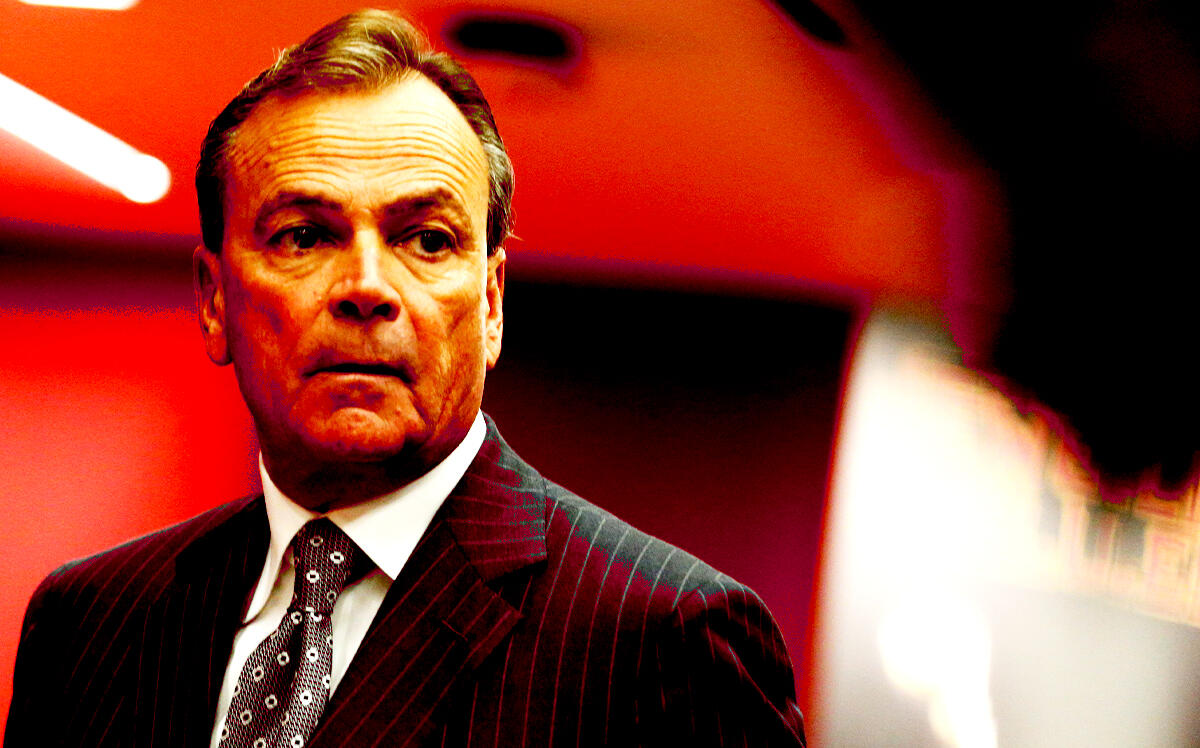Trending
Caruso’s call: Tout real estate credentials or camouflage?
Popular sentiment is against billionaire developers. How might the retail mogul adapt?

A do-nothing politician has opened a door to a billionaire real estate developer in the race for mayor of Los Angeles.
Rick Caruso has an important decision to make: Does he strut through the race openly displaying his real estate credentials, or does he campaign in camouflage?
The do-nothing pol is City Controller Ron Galperin, who recently put the weight of his 160-person staff behind an annual audit of municipal homelessness programs. The report, which you can see here, found that costs continue to rise—now around $600,000 per unit of housing. It’s the latest example of the city’s failure to come through on promises made six years ago, when a $1.2 billion tax hike was sold to voters as a way to get a handle on the public health crisis of homelessness.
rnrnBut given the dire state of homelessesness in L.A., it’s precisely Caruso’s occupation that might make him a contender.rnrn
Galperin’s bully pulpit—he’s one of three officials elected citywide—hasn’t produced much besides press releases. He’s left the true power of his auditor authority on the shelf while setting eyes on the California State Controller’s job in the upcoming election. That could go either way for him, but—if nothing else—Galperin can claim credit for giving Caruso a clear shot to turn his developer credentials into a campaign trail talking point.
It might seem an ill-timed notion, given the leftward slant of L.A.’s political class and both the legitimate and over-the-top critiques of American capitalist society that have gained currency. Put all of that together and a white longtime Republican – he switched party affiliation to Democrat in January – who made his fortune in real estate seems a pipe dream in the mayoral race.
But given the dire state of homelessesness in L.A., it’s precisely Caruso’s occupation that might make him a contender.
There is a simple truth that goes overlooked by brigades of genuine and self-proclaimed do-gooders: Folks are homeless because they—unlike the rest of us—have no home.
Real estate defines both sides of the divide.
It’s up to Caruso to make a case that someone with a track record in development might be able to address homelessness by getting homes built. Galperin’s latest audit gives Caruso an opening to lean into his credentials as a developer and deliver a message about his abilities as they apply to the defining challenge facing the city.
Caruso will need more, though—it’s all dry policy outlines until someone takes the oath of office. And policy outlines are about all any elected officials in L.A. have done for years.
Galperin helped there, too, because his report begs the question of how the city could do so little with the money voters provided to address the chronic crisis of homelessness—it’s been an open sore for years now.
Think about the seeming contradiction of the term “chronic crisis.” How can a city of such wealth allow that oxymoron to become normal, with homeless encampments a fixture of the streetscape from Venice Beach to Boyle Heights, Sylmar to South L.A.?
The answer is public corruption—a documented fact in the city that precedes the recent guilty pleas and pending court case pressed by the U.S. Department of Justice against former City Council Member Jose Huizar. Consider that Loraine Lundquist made a spirited run for another City Council seat in 2020, calling out City Hall for being steeped in corruption—and a majority of the members of the very body she sought to join endorsed her candidacy, offering an unwitting, de facto admission of institutional perfidy.
Lundquist lost—and here’s guessing that some of those council members who endorsed her mailed in their support and were silently relieved that she got nowhere.
But she might have opened another door for Caruso by highlighting public corruption.
Caruso, in contrast to some politicians who use their office for enrichment, has already made his generational wealth. He won’t need to sacrifice public integrity in order to maintain a lifestyle that exceeds his public salary. Being wealthy doesn’t—and shouldn’t—qualify a candidate for public office. It is a factor in Caruso’s life and candidacy, though, and it does offer the potential to give voters some reasonable assurance that he won’t go on the take. And Michael Bloomberg, who was the wealthiest New Yorker when he took office there, showed that the playbook can work in a major city.
The question now is whether Caruso embraces his résumé or tries to hide it.




